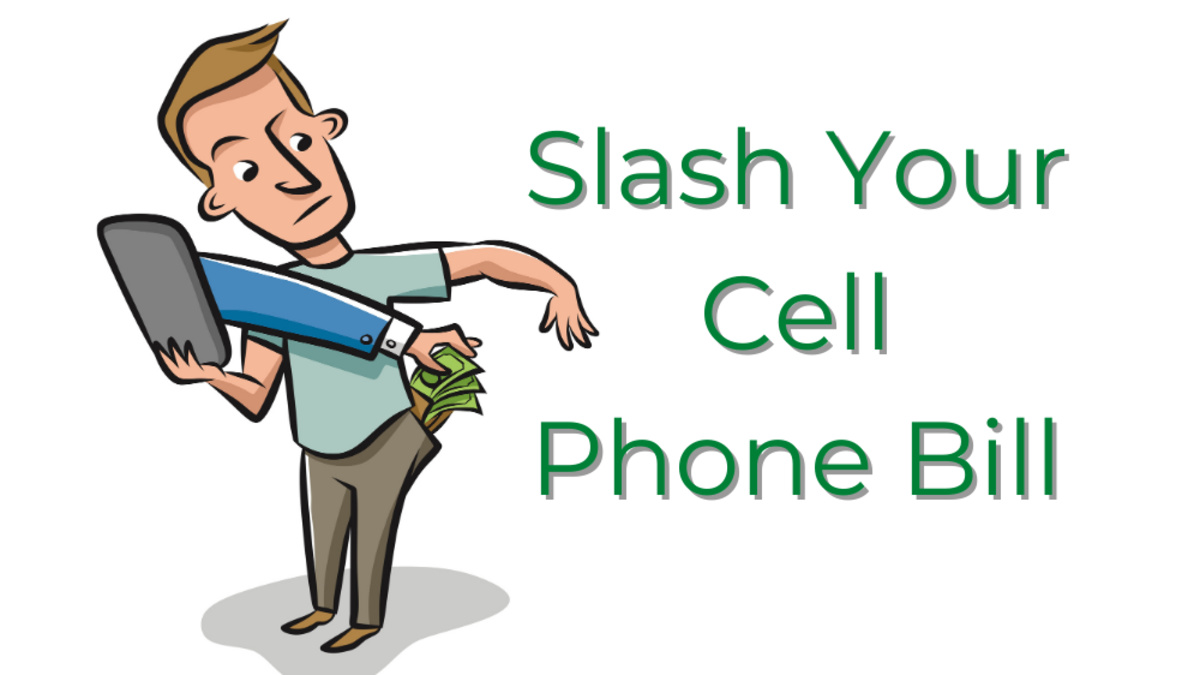Ways to Slash Your Cell Phone Bill

Joy Wallet is advertiser-supported: we may earn compensation from the products and offers mentioned in this article. However, any expressed opinions are our own and aren't influenced by compensation. To read our full disclosure, click here.
Cell phone plans
Prepaid
Is prepaid right for you?
Shared data plan
Is a shared data plan right for you?
Unlimited plans
Is an unlimited plan right for you?
- Transparent information on each offer for earnings and tasks.
- Money is deposited quickly and securely
- Featured offers maximize earnings
- First-class referral program
Cell phone companies
AT&T - Unlimited plans start at $25
T-Mobile - Unlimited plans start at $60
Verizon Wireless - Unlimited plans start at $35
Cricket Wireless - Unlimited plans start at $30
Amazon
- Transparent information on each offer for earnings and tasks.
- Money is deposited quickly and securely
- Featured offers maximize earnings
- First-class referral program
How to save money on your monthly bill
- Number of lines. Prices can vary depending on how many phone lines are included in your plan, so there’s a chance that if you add some family members and all pitch in, you could actually end up saving money.
- Autopay. Most carriers offer an autopay feature that saves you up to $10 off your monthly bill.
- Paperless billing. You may also get a discount by enrolling in paperless billing.
- Data plans. One thing to be aware of if you don’t purchase an unlimited data plan is that if you use more than your allotted data for the month, you may be charged extra on your monthly bill. Some carriers offer a feature that will warn you when you’re close to going over your data allowance to reduce the chances of this happening.
- Wi-Fi. You can also turn wi-fi on your phone settings and connect to wi-fi networks in your home and other trusted places. When successfully connected to wi-fi networks, your phone will use your wi-fi instead of your mobile data.
- Insurance. You should also be sure you’re not paying extra charges for things you don’t need. For example, if you already have Apple Care, you don’t need to pay for extra phone insurance through your carrier.
Pros and cons of cell phone plans
Prepaid or shared data plans
- These are most often the least expensive option for cell phone plans.
- You can choose the amount of data that you want to be included in your plan instead of paying for an unlimited amount that you may or may not use.
- These plans don’t always include features such as mobile hotspots or coverage for talk, text, or data outside of the country.
- If you exceed your data allowance, you could be charged additional fees.
Unlimited plans
- Unlimited plans often offer additional perks such as subscriptions to streaming services.
- In some cases, adding multiple lines to the plan can actually make unlimited plans the best value option.
- Some cell phone carriers with special offers may require you to purchase a new phone to be eligible for special deals.
- Some of the lower-tiered unlimited plans that are offered by carriers may throttle your data to allow more space on the network for those with premium data plans.
- Transparent information on each offer for earnings and tasks.
- Money is deposited quickly and securely
- Featured offers maximize earnings
- First-class referral program
The bottom line
Joy Wallet is an independent publisher and comparison service, not an investment advisor, financial advisor, loan broker, insurance producer, or insurance broker. Its articles, interactive tools and other content are provided to you for free, as self-help tools and for informational purposes only. They are not intended to provide investment advice. Joy Wallet does not and cannot guarantee the accuracy or applicability of any information in regard to your individual circumstances. We encourage you to seek personalized advice from qualified professionals regarding specific investment issues. Featured estimates are based on past market performance, and past performance is not a guarantee of future performance.
Our site doesn’t feature every company or financial product available on the market. We are compensated by our partners, which may influence which products we review and write about (and where those products appear on our site), but it in no way affects our recommendations or advice. Our editorials are grounded on independent research. Our partners cannot pay us to guarantee favorable reviews of their products or services.
We value your privacy. We work with trusted partners to provide relevant advertising based on information about your use of Joy Wallet’s and third-party websites and applications. This includes, but is not limited to, sharing information about your web browsing activities with Meta (Facebook) and Google. All of the web browsing information that is shared is anonymized. To learn more, click on our Privacy Policy link.
Images appearing across JoyWallet are courtesy of shutterstock.com.
Ashley Hart is a lead copywriter and digital marketing expert covering finance, law, real estate, music, entertainment, health and wellness.









